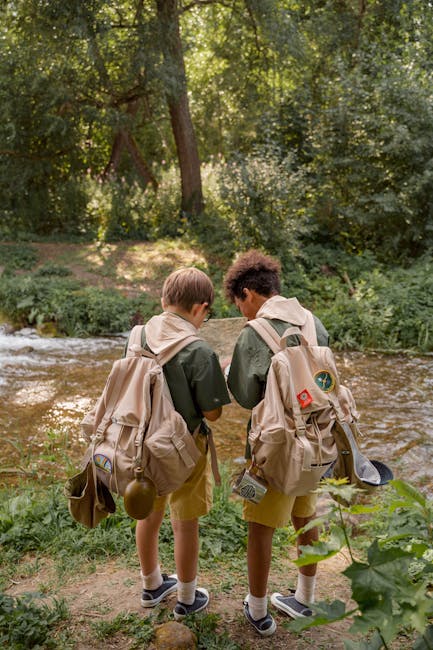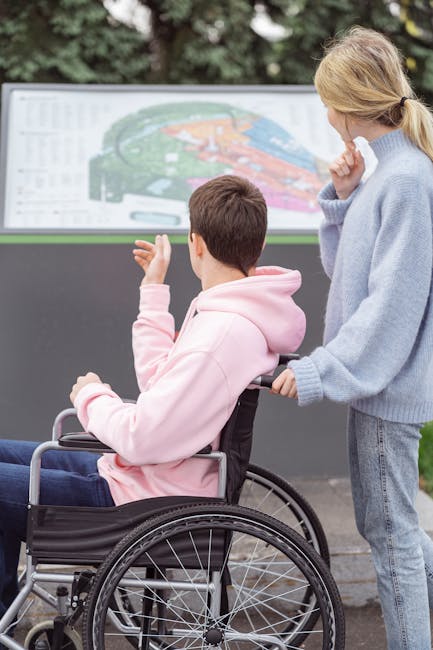Life is full of twists and turns, and as we grow, our friendships often face the ripple effects of these changes. Whether it’s moving to a new city, starting a family, or switching careers, life transitions can challenge even the strongest bonds. But here’s the good news: with a little effort, understanding, and communication, you can keep your friendships thriving through all of life’s ups and downs.
If you’ve ever wondered how to keep your friendships intact while navigating big life changes, you’re in the right place. Let’s dive into the strategies, insights, and tips that can help you maintain meaningful connections, no matter what life throws your way.
Key Takeaways
- Life changes can test friendships, but they also offer opportunities for growth.
- Open communication and empathy are essential for maintaining strong bonds.
- Small, intentional efforts can make a big difference in keeping friendships alive.
Understanding the Impact of Life Changes on Friendships
How life changes can affect friendships
Life changes can feel like a tidal wave, sweeping through your routines and relationships. Sometimes, these changes bring people closer, while other times, they create distance.
For example, a friend who gets married might suddenly have less time for late-night chats. Or, if you move to a new city, you might struggle to stay connected with your old crew. These shifts can leave you feeling disconnected or even questioning the strength of your bond.
But here’s the thing: friendships are like plants. They need care, attention, and sometimes a little pruning to grow stronger.
Common types of life changes that challenge friendships
Moving to a new city
Relocating can feel like hitting the reset button on your social life. Suddenly, your go-to coffee dates and weekend hangouts are replaced with phone calls and texts.
Starting a new job or career
A demanding job or career shift can eat up your time and energy, leaving little room for socializing.
Entering a new relationship or marriage
Romantic relationships often change the dynamics of friendships. Balancing time between a partner and friends can be tricky.
Becoming a parent
Parenthood is a game-changer. Sleepless nights and diaper duty can make it hard to maintain the same level of connection with friends.

Embracing Change Together
Sharing in your friend’s joy during their milestones
When your friend achieves something big, like landing a dream job or getting engaged, celebrate with them! Sharing their joy strengthens your bond and shows that you’re genuinely happy for them.
Offering support during their transitions
Lend a hand when needed
Sometimes, a simple gesture—like helping a friend pack for a move or babysitting their kids—can mean the world.
Celebrate their achievements
Throw a small party, send a thoughtful gift, or even just write a heartfelt note. These little acts of kindness go a long way.
Creating new routines to adapt to changes
If your usual hangouts aren’t possible anymore, create new traditions. Maybe it’s a monthly video call or an annual weekend getaway.

Managing Your Own Emotions During Friendship Transitions
Recognizing and processing your feelings
Notice what comes up for you emotionally
It’s normal to feel sad, frustrated, or even jealous when a friendship changes. Acknowledge these feelings without judgment.
Reflect on how the change affects your connection
Ask yourself: What’s really bothering me? Is it the lack of time together, or something deeper?
Communicating openly about your emotions
Share how you feel with your friend
Be honest, but kind. For example, you might say, “I miss our weekly coffee dates. Can we plan something soon?”
Approach conversations with honesty and empathy
Remember, your friend might be feeling just as uncertain as you are. Approach the conversation with an open heart.

Maintaining Strong Connections Through Effort
Setting aside intentional time to spend together
Even if it’s just a quick coffee or a 10-minute phone call, make time for your friends.
Following through on commitments
If you say you’ll call or meet up, do it. Reliability builds trust.
Staying connected despite distance
Starting a letter-writing campaign
There’s something magical about receiving a handwritten letter. It’s a tangible reminder that someone cares.
Using technology to bridge the gap
Video calls, group chats, and even shared playlists can help you stay close, no matter the miles between you.

Navigating Common Friendship Scenarios
When you feel like you and your friend are growing apart
Sometimes, life pulls people in different directions. Instead of forcing the connection, focus on the quality of your interactions.
How to handle a friendship that feels one-sided
If you’re always the one reaching out, it’s okay to take a step back. Let your friend take the lead for a while.
Recognizing when a friendship is no longer healthy
Identifying toxic patterns
If a friendship consistently leaves you feeling drained or unvalued, it might be time to reevaluate.
Knowing when to let go
Letting go of a friendship is hard, but sometimes it’s the healthiest choice.

Building Resilience in Friendships
Expecting some give-and-take in relationships
Friendships aren’t always 50/50. Sometimes, one person gives more, and that’s okay—as long as it balances out over time.
Trusting your friends’ good intentions
Assume the best about your friends. Misunderstandings often arise from miscommunication, not malice.
Adapting to the evolving nature of friendships
Friendships, like people, grow and change. Embrace the evolution instead of resisting it.
Tips for Strengthening Friendships During Life Changes
Practicing active listening and empathy
When your friend shares their struggles or joys, really listen. Show them that you care.
Finding shared activities or interests
Whether it’s a book club, a hiking group, or a weekly trivia night, shared activities can keep you connected.
Celebrating small moments together
Life is made up of little moments. Celebrate them, whether it’s a random Tuesday or a big milestone.

The Importance of Communication in Changing Friendships
Being honest about your needs and expectations
If you need more time or space, say so. Clear communication prevents misunderstandings.
Addressing misunderstandings promptly
Don’t let small issues fester. Address them before they become big problems.
Setting boundaries to maintain balance
Boundaries aren’t walls; they’re bridges to healthier relationships.
Learning and Growing Through Friendship Transitions
Viewing changes as opportunities for growth
Every challenge is a chance to deepen your connection and learn more about each other.
Reflecting on the lessons learned from evolving friendships
What has this friendship taught you about yourself? About others?
Embracing the journey of lifelong connections
Friendships are a journey, not a destination. Cherish the ride, bumps and all.
Conclusion: Navigating Friendships with Grace and Understanding
Recap of key strategies for managing life changes in friendships
From open communication to intentional effort, there are countless ways to keep your friendships strong.
Encouragement to approach transitions with compassion and flexibility
Life changes are inevitable, but they don’t have to mean the end of meaningful connections.
Celebrating the enduring value of meaningful friendships
At the end of the day, friendships are one of life’s greatest treasures. Treat them with care, and they’ll enrich your life in ways you never imagined.
For more tips on building strong relationships, check out this guide or explore ways to create a supportive network.
Navigating Friendships Through Life Changes: Your FAQ Guide to Staying Connected
Why do friendships change during major life transitions?
Friendships often shift during life changes because our priorities, routines, and interests evolve. These changes can create physical or emotional distance, but they also offer opportunities to strengthen or redefine connections.
How can I maintain friendships when I move to a new city?
Staying connected requires effort, such as scheduling regular calls, sending updates, or planning visits. Additionally, embracing new communication tools like video chats can help bridge the physical gap.
What should I do if I feel like I’m outgrowing a friendship?
It’s natural for friendships to evolve. Open communication is key—share your feelings honestly and assess whether the relationship can adapt to your new phase of life. Sometimes, it’s okay to let go with gratitude for the shared memories.
How do I support a friend going through a major life change?
Offer empathy and patience. Check in regularly, listen without judgment, and ask how you can help. Small gestures, like sending a thoughtful message or offering practical support, can make a big difference.
What are some tips for making new friends during life transitions?
Be proactive by joining groups, attending events, or engaging in hobbies where you can meet like-minded people. Don’t hesitate to initiate conversations and follow up to build meaningful connections.
How can I handle feelings of jealousy or insecurity when a friend’s life changes significantly?
Acknowledge your feelings and reflect on their root cause. Focus on celebrating your friend’s success while reminding yourself that everyone’s journey is unique. Open communication can also help clear misunderstandings.
What if my friend doesn’t seem to have time for me anymore?
Life changes can make people busier, but it doesn’t always mean they value you less. Express your feelings kindly and suggest ways to stay connected that fit their new schedule, like shorter catch-ups or virtual chats.
How do I rebuild a friendship after losing touch during a life change?
Reach out with a genuine message expressing your desire to reconnect. Be patient and understanding, as rebuilding trust and closeness may take time. Focus on creating new memories together.
Is it normal to feel lonely during life transitions, even with friends around?
Yes, it’s common to feel lonely during transitions as you adjust to new circumstances. Share your feelings with trusted friends and seek support from new social circles or professional resources if needed.
How can I balance old friendships while embracing new ones during life changes?
Prioritize quality over quantity. Dedicate time to nurturing long-standing relationships while staying open to new connections. Clear communication and setting boundaries can help maintain a healthy balance.



